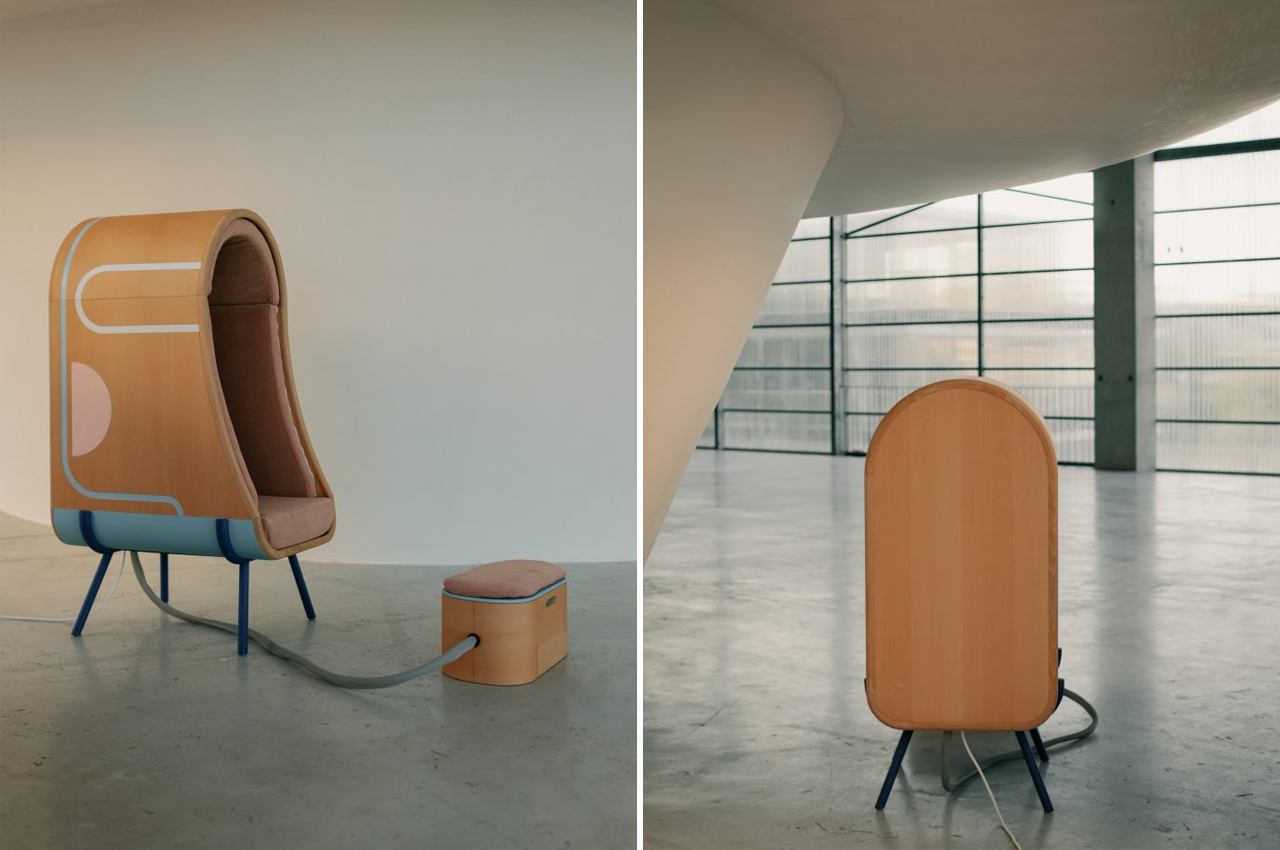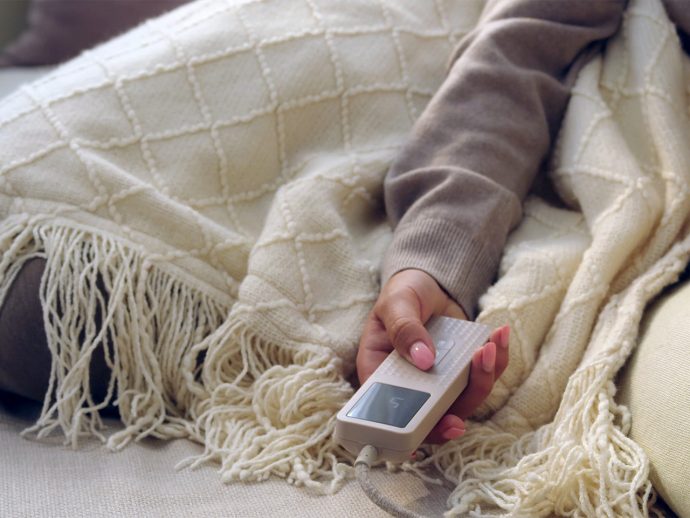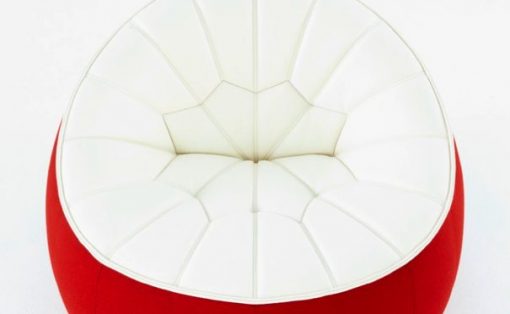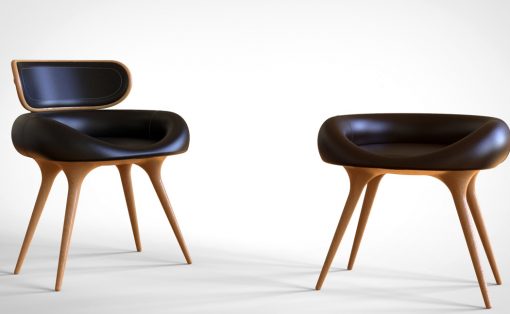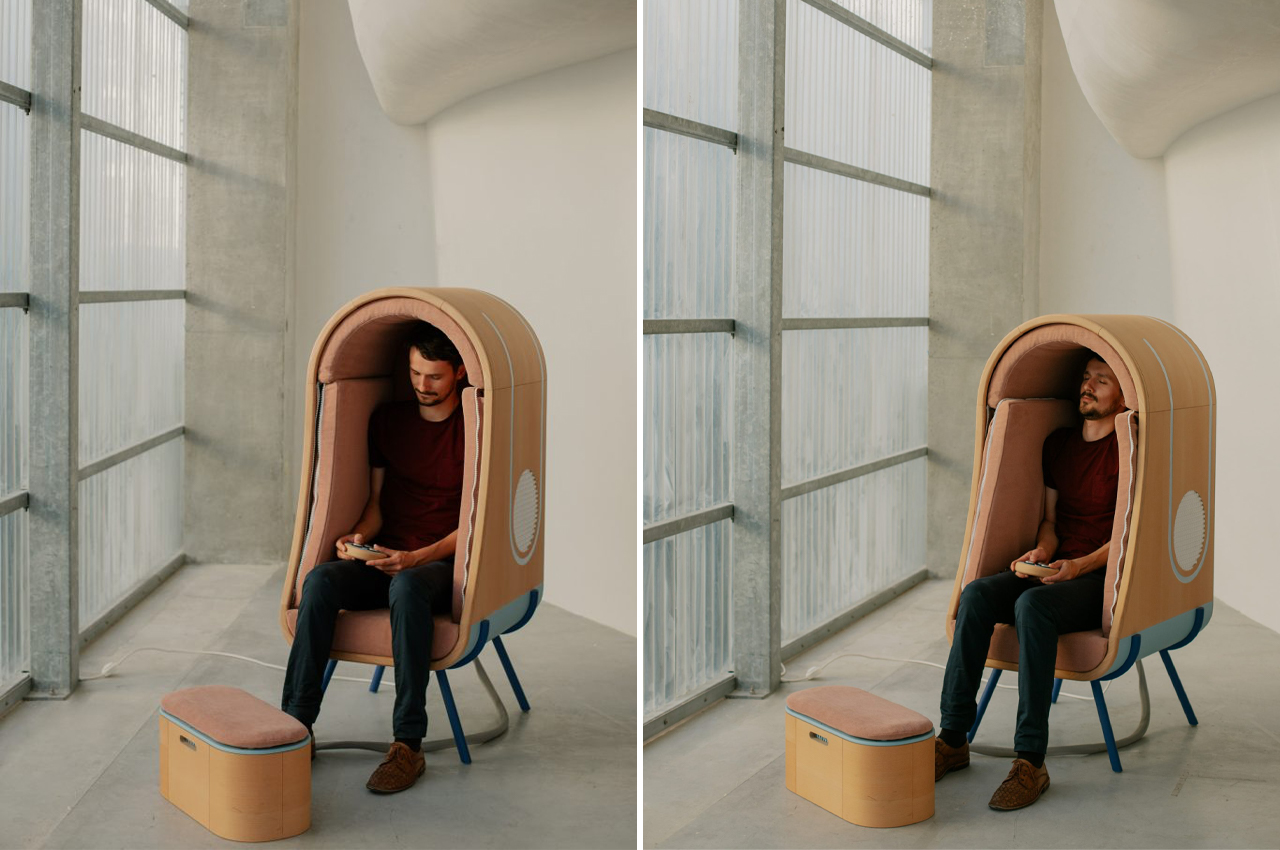
The Oto Chair, or Hugging Chair, is a piece of therapeutic furniture designed for autistic individuals with sensory integration disorders.
“As a designer,” Alexia Audrain says, “you have to be in contact with the user, their environment, their daily habits and always make tests before reaching a finished product.” Describing the process of creating a chair designed for users with autism and sensory integration disorders.
Designer: Alexia Audrain
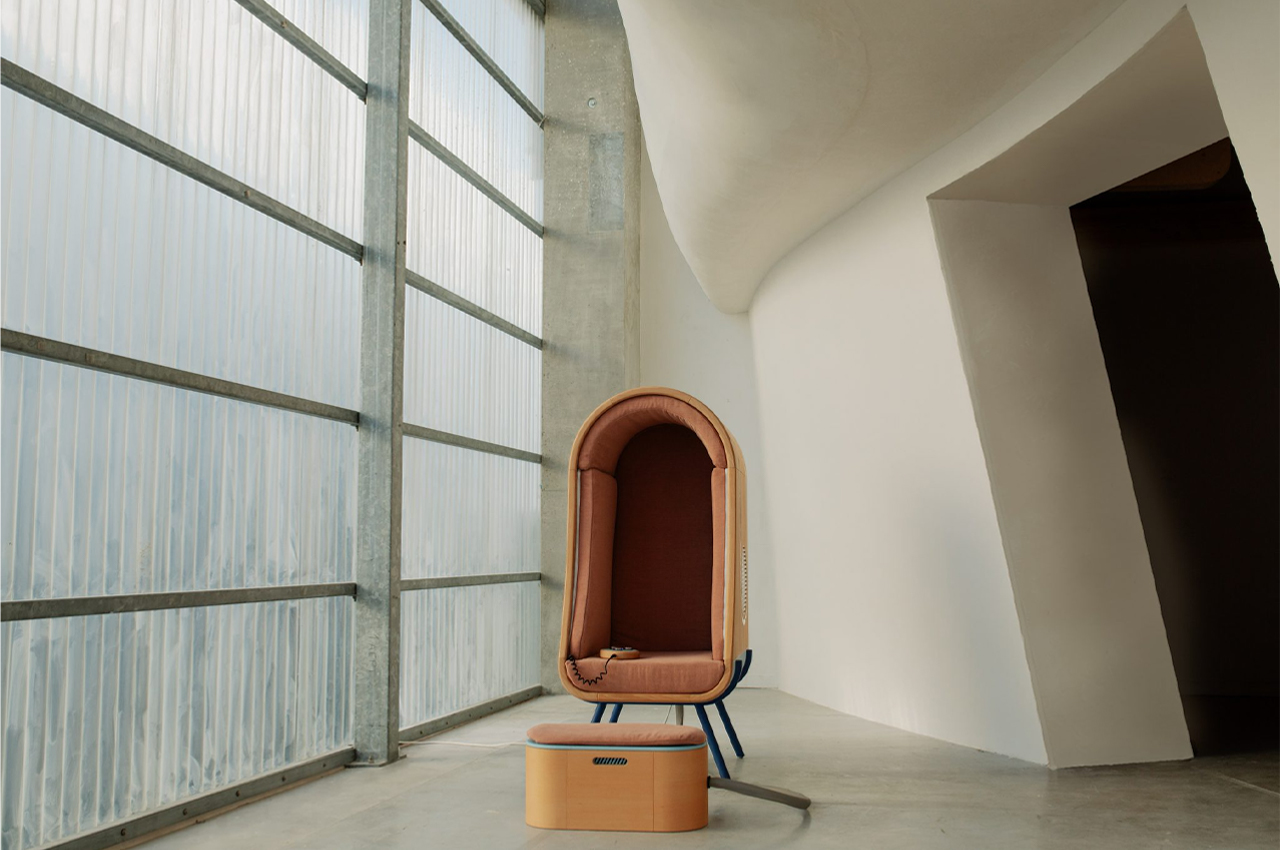
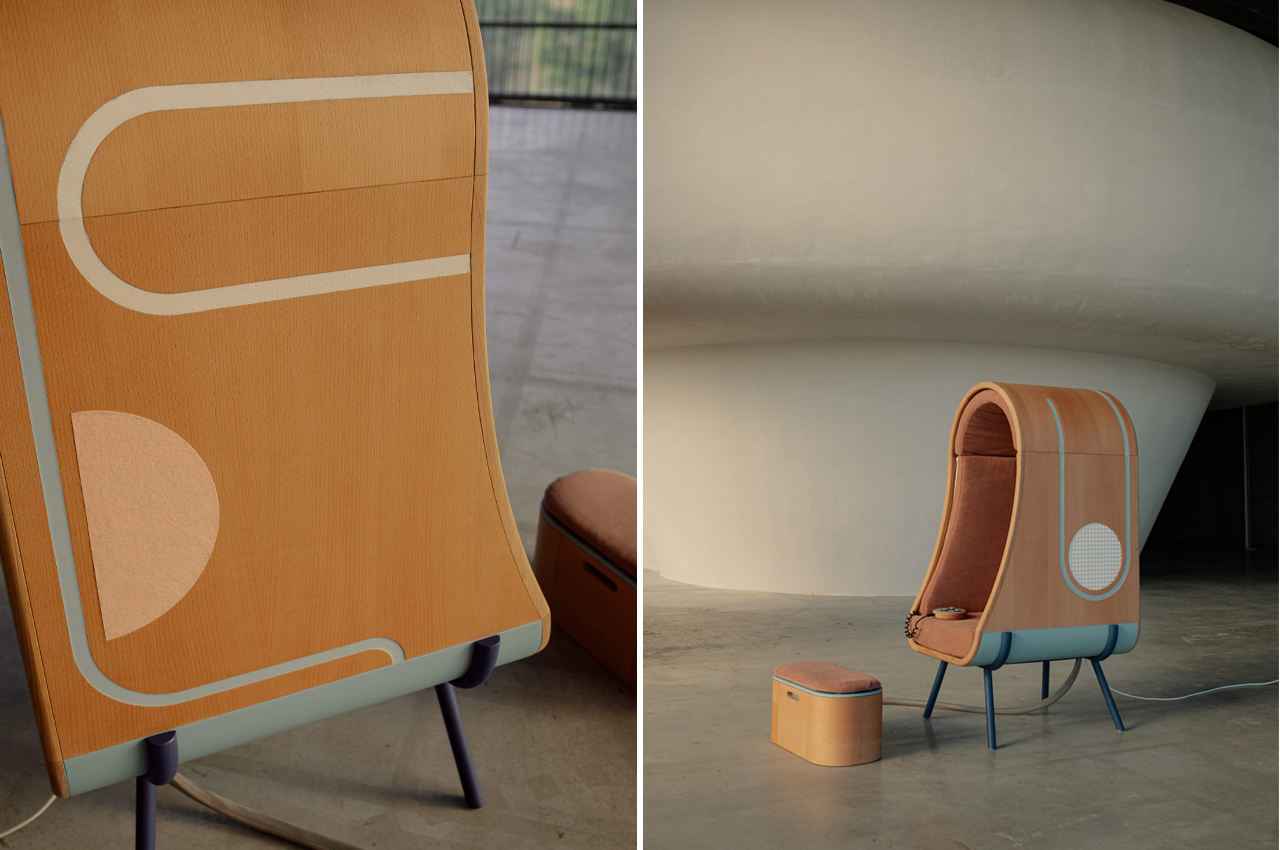
Considering that 45% to 95% of people with autism have sensory integration disorders, designer Alexia Audrain produced a chair to help quell the effects of sensory overstimulation. The Oto Chair, or Hugging Chair, aims to actively recreate the soothing sensation that comes with being hugged or compressed for individuals with autism.
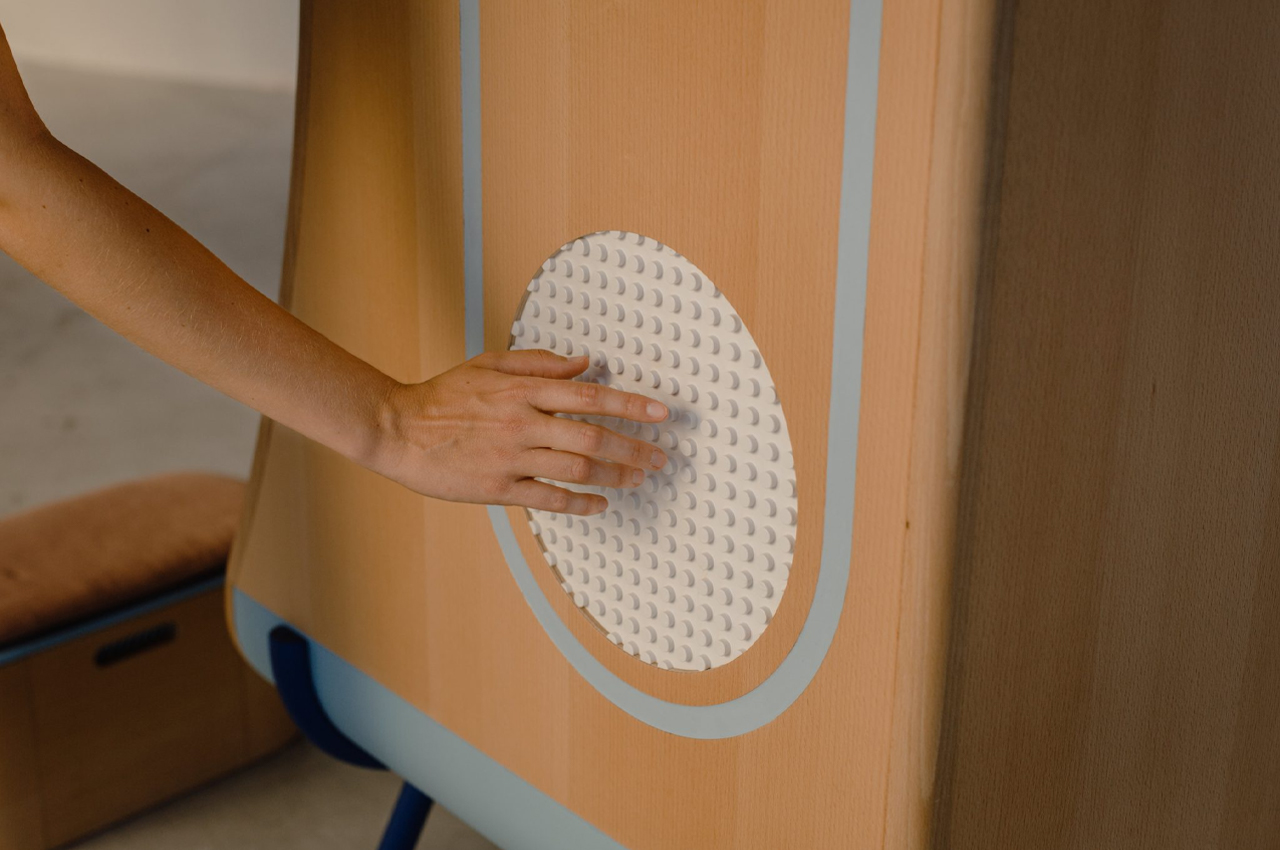
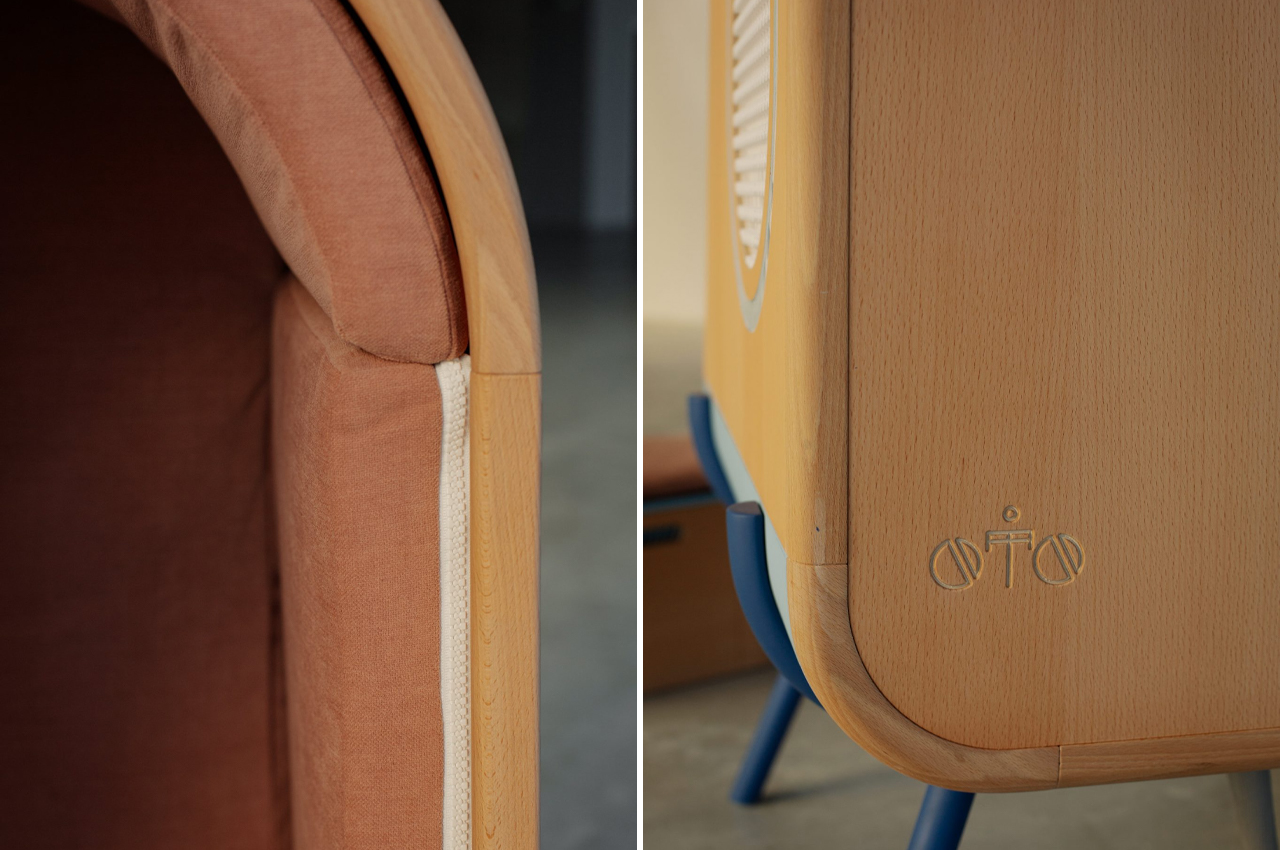
Putting “a sense of agency and dignity,” back into the design and build of therapeutic furniture was at the forefront of Audrain’s mind when creating the Oto Chair. Honing in on this aspect of its design, Audrain equipped the Oto Chair with a footrest and intuitive remote that grants control to the chair’s sitter. Outfitted with a resistance-foam cushion, sitters use the remote to activate the chair’s compression mode. To draw and construct the Oto Chair, Audrain turned to the community who would benefit most from its function.
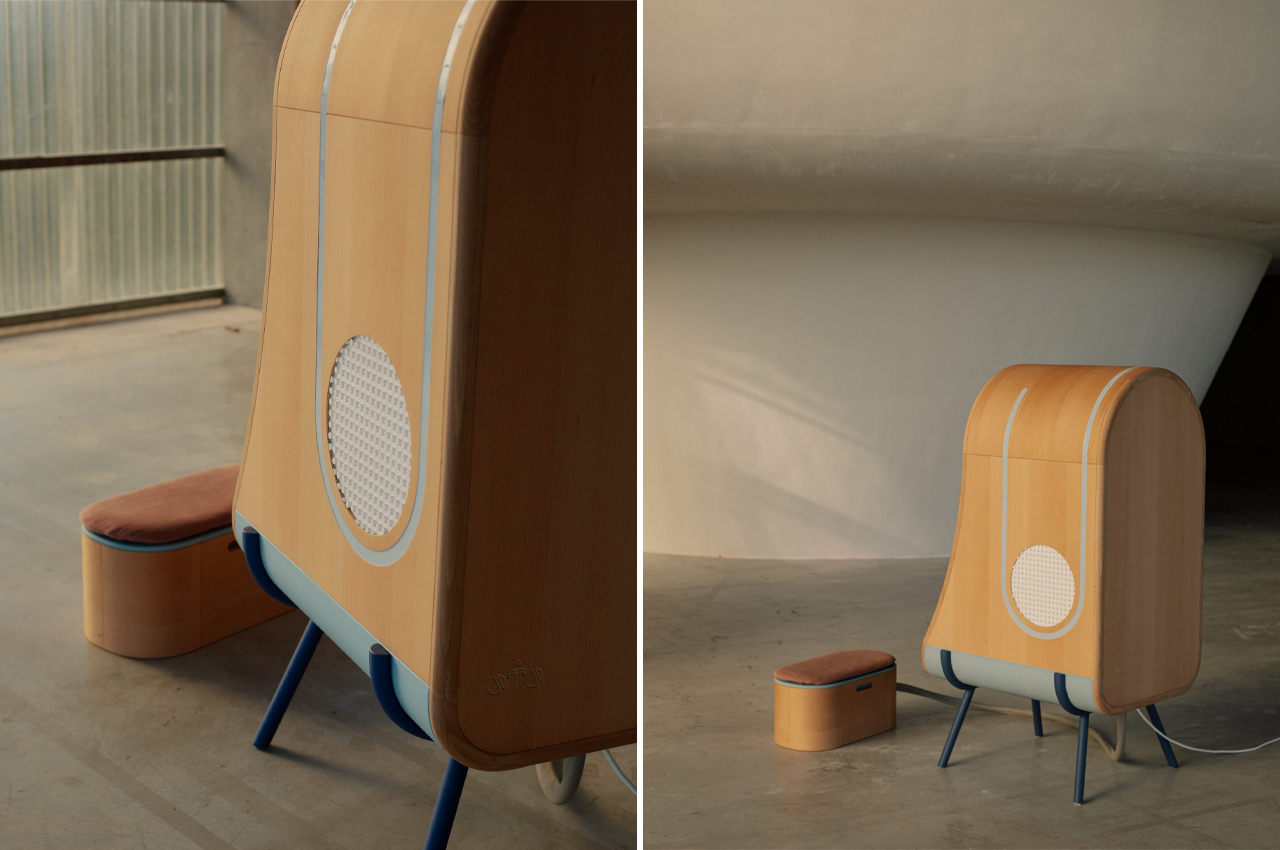
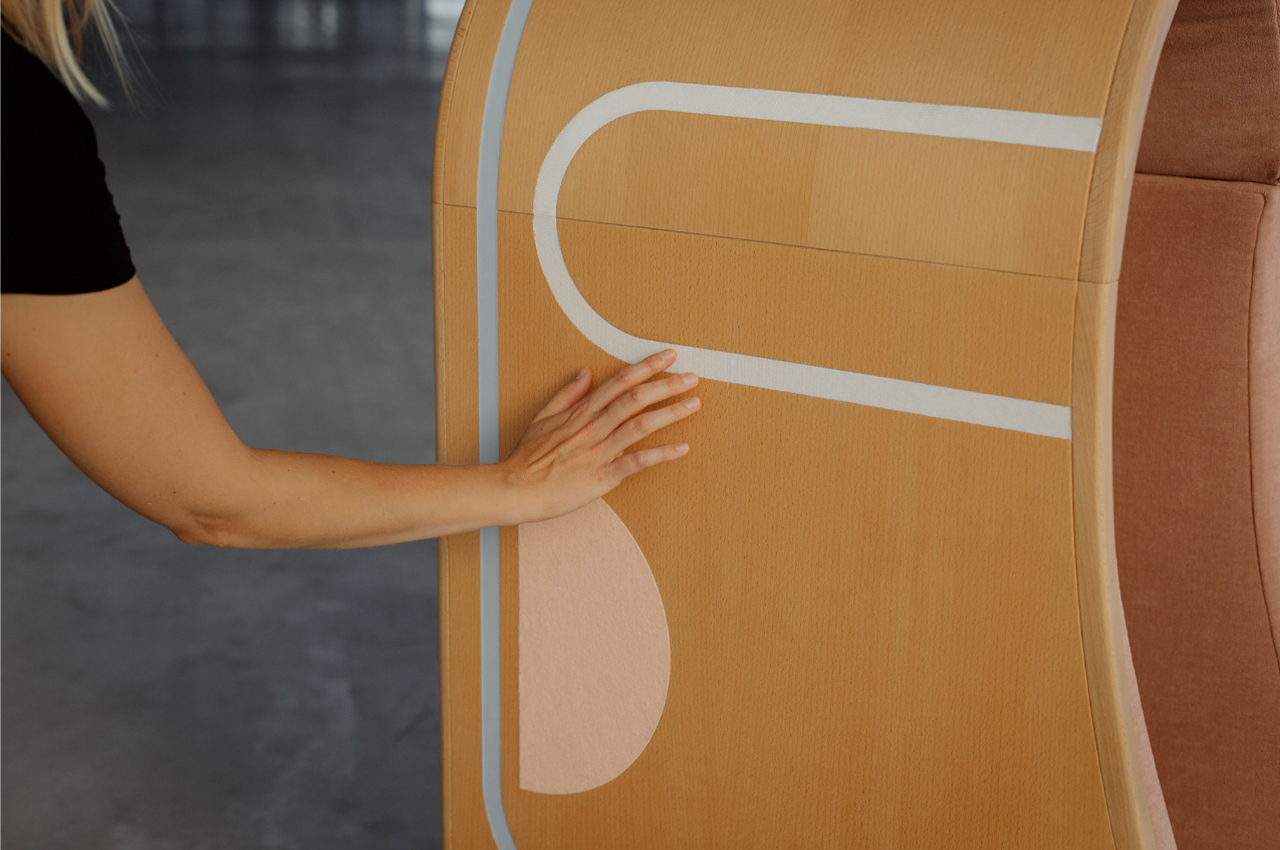
Audrain says, “It was important for me to work with people who truly understand the condition, so I spent time with people who have autism, with specialized educators and psychometricians studying sensory processing disorders to understand their needs and their daily life.”
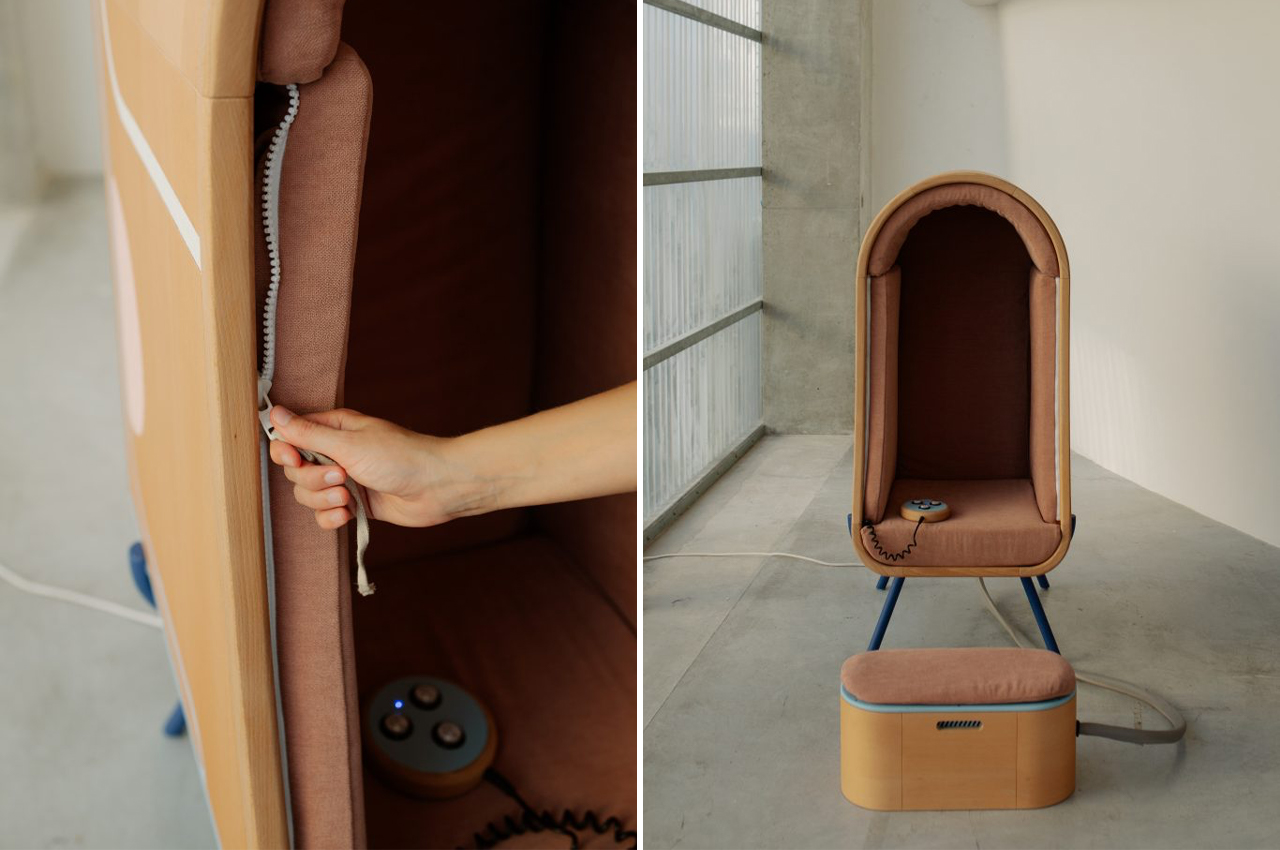
When designing the Oto Chair, Audrain also leaned on her cabinetmaking skills in conjunction with insight she gained from experts in the field of therapeutic furniture. Unlike other therapeutic furniture that’s made from plastic, the Oto Chair maintains a classic, beechwood build that gives it a sturdy and warm personality. Defined by a cocoon silhouette, the Oto Chair couples its unique shape with plush upholstery that absorbs sound and encourages sitters to “concentrate on their senses,” as Audrain describes.
